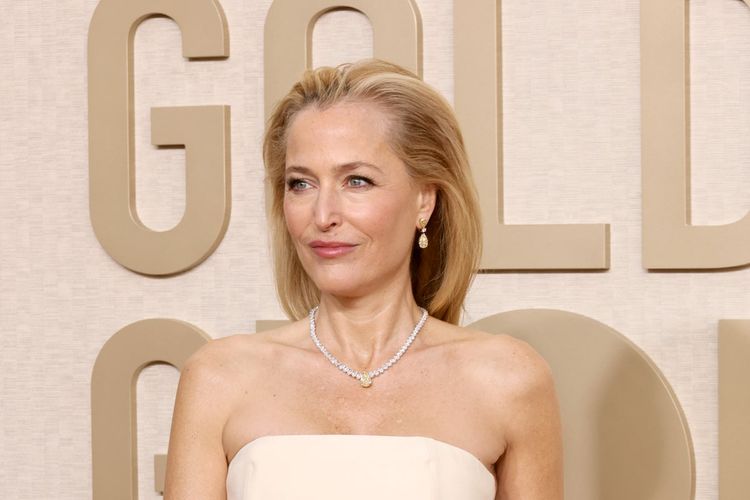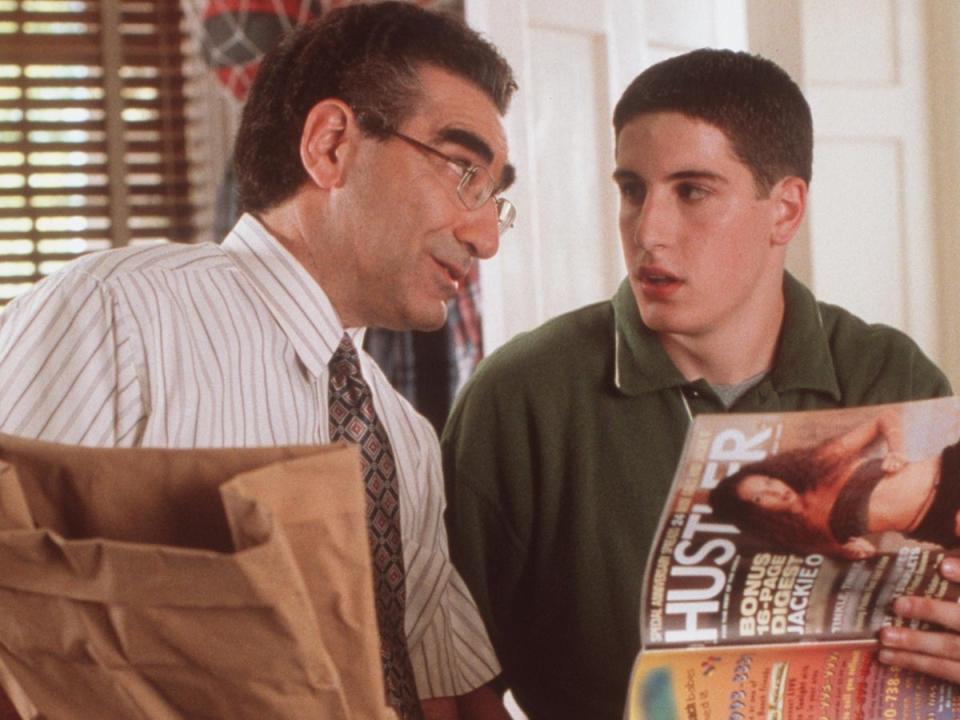Voices: The wildest thing about Gillian Anderson’s book on women’s fantasies

As Gillian Anderson is well-known for her role as therapist Jean Milburn in the popular Netflix show Sex Education, it makes sense that she would be the perfect person to oversee and contribute to a book focused on sex.

Despite initially finding it difficult to express her needs, she is now at ease talking about the topic, which is incredibly beneficial for all of us.
Desire is a book of sexual daydreams shared by women. 1,800 people, including Anderson, have shared their thoughts on motherhood, body positivity, and their most secret sexual wishes (like a fantasy involving wizards or a steamy encounter with singer Harry Styles).
Why did she make this collection of art? Because many women still feel the urge to keep their desires hidden and remain silent about their sexual needs.
Anderson makes a valid argument...
Even though the porn industry is worth billions of dollars and is very profitable, most of the adult content is made for men and focuses on what they want. It often includes sexist and disrespectful attitudes towards women.
The 2023 Year in Review from Pornhub reveals the top searched terms such as "mature", "milf", and "cougar". There was a 243% increase in searches for "uniform" last year, which includes terms like "military uniform" or "police uniform", but also brings attention to the concerning trend of sexualizing underage-looking girls in school uniforms.
This doesn't mean that women don't watch adult videos or look up explicit terms (like "dilf") on their own, but the numbers are noticeably lower.
Surprisingly, a case study in the book discusses the issue of women engaging with porn and the difficulty they face in distinguishing between their genuine fantasies and those they feel pressured to fantasize about. This dilemma is familiar to many women in their intimate encounters: are our desires authentic, or is there a sense of performance involved?
This is something I struggled with before, especially in my younger years. According to porn, I was expected to reach orgasm quickly without much effort from my partner, enjoy having my hair pulled forcefully (even though it was painful and I worried about bald patches), and moan loudly to show the man I was with that I was enjoying myself.
The expectations to accomplish all of these tasks were (and continue to be, for many) very strong- and it’s a feeling that most women take on from a young age. If you're not doing it like you see on TV, then you must not be doing it correctly... do you agree?
Next, there were the high school films that I, like many other women my age, watched as we were growing up. The success of American Pie showed us young girls that our wants - in terms of intimacy, emotional support, and respect - were less important compared to men's focus on having sex. If we weren't willing to have sex, we were labeled as "teases" or "cold".
Kevin only researched how to give oral sex to a woman so that his girlfriend Vicky would sleep with him. He didn't care about her pleasure, only what he could get out of it for himself.
Movies such as 'American Pie' led me to believe that men's wants and needs were more significant.
It took me a while to change my view on sex and focusing mainly on men's pleasure. Like many women I've talked to, I had to discover my body to realize that sex can be enjoyable for women as well. This realization came before I even began exploring my fantasies, similar to the women in Anderson's book.
Challenging the long-standing taboo of women discussing sex openly can be incredibly empowering. It is inspiring to see TV shows like Sex Education and Bridgerton focusing on female pleasure and confidence, bringing these important topics into the spotlight.
Television shows can break misconceptions and educate young viewers on consent and body positivity, especially at a time in their lives where they may not have much experience exploring their own or others' bodies. It's also noteworthy that men in Regency-era Britain are shown as emotionally intelligent, respectful, and genuinely caring about their partner's well-being and pleasure, which is quite revolutionary.
I also came across the new trend of "porn-dosing" recently. This involves women listening to audio porn while doing regular tasks like grocery shopping or walking their dog. It's not necessarily about being sexual, but more about adding some excitement to daily activities. Studies have shown that seven out of 10 women see solo sexual pleasure as important for their mental well-being and self-care.
However, what also catches my attention about these instances of how (and where) women find pleasure is that there is still a sense of secrecy involved. While Bridgerton is extremely popular, women are still viewing (and relishing) it in private settings.
Anderson's book sheds light on the stigma women associate with their sexual experiences, evident in the anonymous entries. Although it is valuable to hear these stories and perspectives, many women are still concealing their truths, hesitant to openly embrace and celebrate their sexuality.
However, the negative perception can only go away if we start talking openly about women's sexual wants. If Want is able to make at least one reader feel more at ease about expressing themselves sexually, then that is definitely a positive outcome.



















































